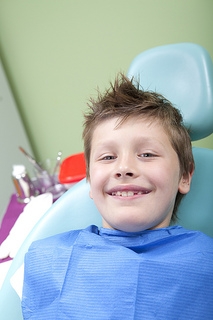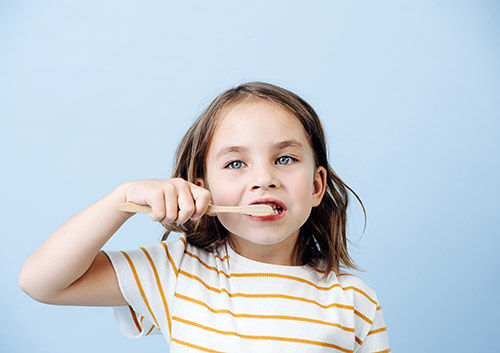
We want our children to have every advantage, including oral health. That’s why you encourage your child to brush twice a day. You keep the sugary treats to a minimum. You schedule dental exams and cleanings at our Spartanburg, SC office.
So, how did your child get a cavity? What to do to prevent more tooth decay?
First, don’t feel guilty. Some people are more prone to cavities, even with diligent brushing and flossing. But to make sure children have all the advantages when it comes to preventing cavities, we have some tips which might improve their dental habits.
Even for adults, brushing technique can be haphazard! Brushing’s not as effective without covering all the tooth surfaces (inside, outside, and molar tops), holding the brush at a 45° angle, gently brushing the teeth with small strokes, brushing for at least two minutes, and flossing between the teeth at least once a day.
Until children develop the motor skills to brush by themselves (around age six or seven), you can help by monitoring their brushing and flossing. If you like, you can use these four minutes a day for fun as well as dental care by playing music, awarding stickers, using an app with entertaining timers, or having your child mirror your brushing habits as you brush together.
And do make your child’s life easier with the right tools. Brush heads should be small enough to fit in little mouths comfortably, and bristles should always be soft. Floss, too, should be soft and flexible. Don’t forget to retire your child’s brush after three or four months—bristles start to fray and won’t clean effectively.
Ask about dental sealants. This treatment provides a protective coating for your child’s molars. Cavities are so common in molars because the tops of these teeth are quite uneven. Food particles and plaque are trapped in grooves where brushes have a hard time reaching.
The sealant process is a simple and safe one. Healthy teeth are cleaned and dried, an etching solution prepares the tooth surface, a thin coat of sealant is applied, and the coating is hardened under a curing light.
Dr. HJ Turner and Dr. DJ Turner might recommend sealants when your child’s first adult molars erupt. Enamel takes a while to develop its full strength, so new molars are especially vulnerable to cavities. Sealants typically last from three to five years, and studies have shown a dramatic reduction in cavities when teeth are treated with sealants.
- Fluoride Helps Prevent Cavities—in Two Ways!
Fluoride helps strengthen enamel in developing teeth. Because many communities have fluoride available in their water systems, your child gets the benefit of this natural mineral.
If you’re providing your child with fluoride toothpaste, you’re helping prevent cavities in the teeth, which have already erupted. The acids from oral bacteria weaken the mineral structure of enamel, which is the first step in forming a cavity. Fluoride helps repair weakened enamel in a process known as “remineralization.”
Dr. HJ Turner and Dr. DJ Turner can let you know the amount of fluoride that is right for your child, including how much or how little fluoride toothpaste to use, a prescription supplement if your water doesn’t contain fluoride, or the application of a fluoride treatment directly to your child’s teeth.
Some treats are much better than others. We’re not talking taste, though. When it comes to dental health, texture and time are more important.
When your child enjoys a plain chocolate bar, saliva helps wash away sugary food particles. Sticky candies and starches, like caramels and potato chips, are a “stickier” problem. They cling to enamel, providing lots of sugar as fuel for cavity-creating bacteria. Similarly, drinking a soda with lunch (not every day, of course!) provides a short exposure to sugars. Sipping sodas throughout the day is like bathing teeth in sugar for hours at a time.
To eliminate some of the treats bacteria love, choose snacks with an eye to how they affect teeth throughout the day, and teach your child to brush or rinse with water after eating.
- Schedule Regular Dental Exams and Cleanings
Most children should be visiting Pediatric Dentistry of Spartanburg twice a year, even during the baby teeth years. Dr. HJ Turner and Dr. DJ Turner will monitor your child’s primary teeth and developing teeth and bite. And a professional cleaning removes built up plaque that even the most dedicated brusher might miss.
If you have any concerns about cavities and their prevention, Dr. HJ Turner and Dr. DJ Turner will have suggestions tailored to your child’s individual needs. Us working together to make sure your child has a healthy, confident smile? That’s a partnership that will provide lifelong advantages!











 Website Powered by Sesame 24-7™
Website Powered by Sesame 24-7™
